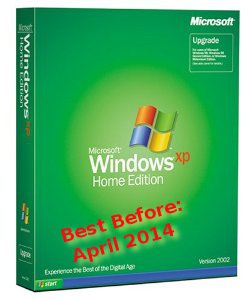 Microsoft’s Security Blog lays out some of the important security implications of end of support so that customers are informed about what this change means to them.
Microsoft’s Security Blog lays out some of the important security implications of end of support so that customers are informed about what this change means to them.Some of the information in this Blog might be on the technical side, but the important thing to note is, “… after April 8, 2014, Windows XP SP3 users will no longer receive new security updates, non-security hotfixes, free or paid assisted support options or online technical content updates.
This means that any new vulnerabilities discovered in Windows XP after its end of life will not be addressed by new security updates by Microsoft. Moving forward, this will likely make it easier for attackers to successfully compromise Windows XP-based systems using exploits for unpatched vulnerabilities. In this scenario, antimalware software and other security mitigations are severely disadvantaged and over time and will become increasingly unable to protect the Windows XP platform.”
=============================================
From an article in the New York Times, “Beyond Windows XP”, August 23, 2013:
“Microsoft’s Windows Lifecycle fact sheet gives Windows 7 a retirement date of Jan. 14, 2020. The Windows 7 mainstream support period, where things like feature updates can still happen, is scheduled to end Jan. 13, 2015.
Many users have resisted upgrading to Windows 8, which introduced big design changes that have been met with some harsh reviews. So Microsoft is preparing Windows 8.1 for release this October. As seen in the free preview version of the software, Microsoft has been responding to complaints about Windows 8 and is trying to make this newest update to Windows seem more like the familiar older editions.”
